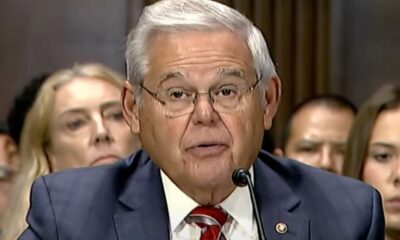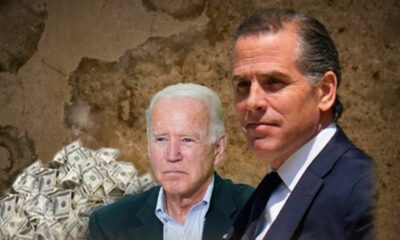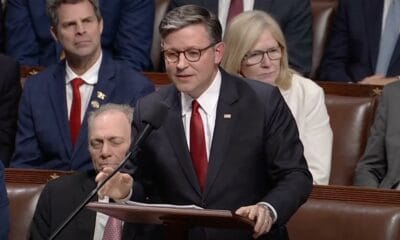Corruption
David Sacks Exposes Washington’s Corrupt Money Flow and Political Influence
The U.S. government runs a $2 trillion deficit each year, with the national debt nearing $40 trillion. Despite these financial burdens, Washington insiders resist any attempt to cut spending. Why? David Sacks argues that the money isn’t benefiting the American people—it’s being funneled back to the political establishment.
A Self-Sustaining Slush Fund
Sacks asserts that Washington’s money flow creates a self-sustaining system of influence. Media organizations, political figures, and foreign entities benefit from taxpayer dollars. The New York Times, Politico, and Bill Kristol—longtime advocate for U.S. military intervention—are among those receiving funds. Foreign aid appears to focus less on diplomacy and more on securing ideological alliances. The United States Agency for International Development (USAID), which disburses about $50 billion annually, serves as a key instrument in this global influence campaign.
A portion of this money funds political movements abroad rather than serving American interests. Sacks points to Ukraine as a prime example, where funding supports media organizations aligned with Washington’s agenda. Likewise, in Hungary and Poland, USAID allegedly finances left-wing opposition groups, fostering political friction within sovereign nations. Sacks suggests this undermines local support for these movements and instead manufactures consent for Washington’s policies.
Manufactured Consensus, Not Grassroots Support
Sacks argues that the left-wing establishment claims to represent grassroots activism and democracy. However, reality suggests otherwise. Washington’s financial networks create a top-down system where ideological conformity is bought and paid for. This funding extends beyond the United States to media organizations like the BBC, shaping narratives globally.
By financing left-wing groups worldwide, Washington exports political ideology while maintaining the illusion of organic support. This raises questions about how much of the global leftist movement is genuinely grassroots and how much is a product of a well-funded apparatus reinforcing Washington’s interests.
A System Designed to Perpetuate Itself
Sacks highlights a broader issue within American politics and finance: a perpetual spending network that benefits the establishment at taxpayers’ expense. Cutting government expenditures proves difficult because those in power sustain a cycle where public money continuously funds institutions and individuals aligned with their agenda.
This cycle—what Sacks calls “round-tripping” of funds—suggests fiscal responsibility is not just an economic issue but a political one. If attempts to reduce spending are consistently blocked by those benefiting from government largesse, meaningful reform may never happen.
Sacks’ analysis presents a sobering reality: Washington insiders have built a financial ecosystem ensuring their own survival rather than serving the American public. Whether through media payoffs, foreign aid, or government-funded political opposition abroad, the system sustains itself indefinitely. Until the cycle is broken, the corruption Sacks describes will continue to thrive.
































